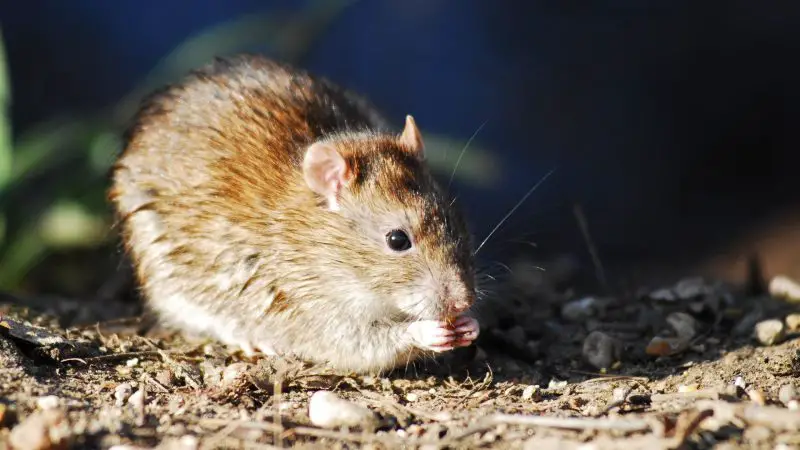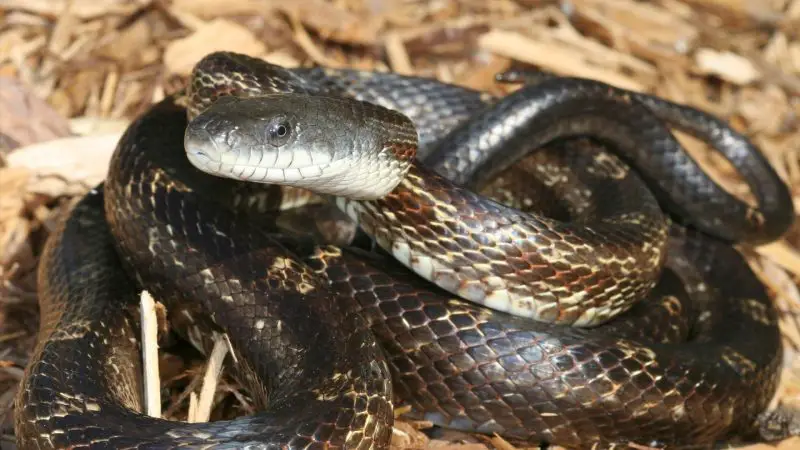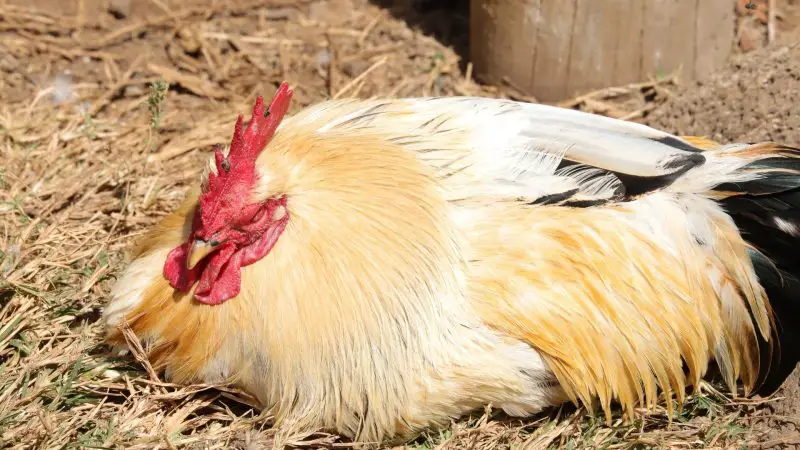If you’ve set up an organic chicken farm for eggs, it’s common to find a few of them missing from time to time. However, it’s essential to figure out what animal is preying on your eggs and take measures to prevent subsequent attacks.
What animals eat chicken eggs? Chicken eggs are a part of the diet of many animals, the most common being rats, squirrels, snakes, raccoons, and crows. Eggs are also sometimes eaten by other chickens in the same coop, often when nesting space is limited.
This article will discuss how to stop these predators from attacking your eggs and explore a few questions related to chicken eggs being eaten.
Do Squirrels Eat Chicken Eggs?

Squirrels seem like shy, anxious animals that can be shooed away quickly. However, you don’t want your squirrels getting close to your chicken coop for several reasons.
Squirrels are known to break into coops and eat chicken eggs, especially during the springtime, as this is when they need to stock up on food, and egg production is at its highest. They also feast on chicken feed, dirty the feed with their eliminations, and are known to kill chicks when they’re starving.
One of the main reasons you want to squirrel proof your home is because squirrels attract birds of prey. Once these birds become aware of the chicken eggs laying around, they’re sure to come back to feast on them.
Do Rats Eat Chicken Eggs?

Rats are generally attracted to chicken coops for the feed as it contains many of the tidbits rats love to feast on.
If given the opportunity, rats will eat chicken eggs as well. Rats are also known for stealing chicken eggs by making a hole in them and dragging them away using their teeth.
Aside from eating the eggs, rats also attract larger predators, like snakes, who will devour chicken eggs if given the opportunity.
Do Rat Snakes Eat Chicken Eggs?

As mentioned earlier, snakes (especially rat snakes) are attracted to chicken coops because there is a veritable feast of rodents available to eat.
Rat snakes will swallow chicken eggs if they encounter them while looking for rats and rodents in a chicken coop. They are opportunistic hunters and won’t miss the chance if they get an easy meal.
Do Chickens Eat Their Own Eggs?

Now that we’ve dealt with all the predators that eat eggs let’s look at the animals around the eggs most often – the chickens themselves!
Chickens are known to peck at their eggs, both in the wild and in a backyard coop. A chicken may even taste the yolk and enjoy it so much that they will continue to eat the eggs in the pen.
How to Tell Which Chicken Is Eating Eggs?
With so many chickens running around the coop, it can be challenging to spot the egg eater. You may have to watch their behavior and see which one is regularly making its way to the nestboxes.
The easiest way to determine which chicken is eating your eggs is to look for remnants of yellow yolk on their beaks, necks, and feathers. Observe your chickens regularly, and you should be able to find the culprit.
How to Stop a Chicken From Eating Its Own Eggs?
If you find a chicken eating its eggs, it’s usually a symptom of a more significant problem within the coop. By making certain modifications, you can reduce the likelihood of your chicken eating its eggs.
When a chicken eats eggs, there’s likely an issue with the coop or its feed. A few ways you can resolve the issue include improving your birds’ diet and adding nesting boxes. You should also routinely remove eggs from the coop and replace them with fake ones.
Routinely Remove Eggs
Chickens tend to scout for nests well before they’re about to lay eggs, and these scouting expeditions can cause them to step on eggs that haven’t been removed yet. Once these eggs crack and the chicken tastes the yolk, they may start eating eggs.
Improve Their Diet
Sometimes a chicken may be receiving insufficient calcium or protein from the feed you provide. A lack of nutrition can cause your chicken to turn against its eggs as they are a rich source of the nutrients it requires.
Place Fake Eggs
If you’re working with a particularly challenging case, consider removing the eggs and replacing them with golf balls or fake wooden eggs. The egg eater will get tired of trying to crack open these counterfeit eggs in a few days and may give up eggs altogether.
How to Stop Predators From Stealing Your Eggs?
To stop predators from entering your coop and stealing eggs, you’ll have to fortify the cell with steel mesh and perhaps even a wooden gate.
Possums and Raccoons
Possums aren’t too much trouble and can usually be kept out with a steel fence or high wall. The real problem is keeping raccoons out of the vicinity.
Raccoons are notorious for digging under barriers and climbing over fences to get into the chicken coop. They can be ruthless and will even kill and eat adult birds if they get the opportunity.
To keep raccoons away, you must securely lock your chickens in their coop every night. By locking them up, you can keep them safe from raccoons who get into the poultry area.
You also want to cover trash bins and keep away pet food as raccoons roam at night looking for food, and trash cans are their favorite source.
Skunks
Skunks are similar to raccoons in that they will dig under barricades to get to chicken eggs. It’s challenging to scare a skunk away, given the foul odor it gives off the moment it’s threatened.
The best way to deal with a skunk is to soak a few rags in ammonia and place them around your poultry fence. These rags will mimic the smell of a predator’s urine and deter skunks from getting close.
Snakes
Snakes don’t usually come for chicken eggs but instead for rats and rodents in the vicinity. However, if they find a chicken egg while looking for their prey, they swallow it whole.
The most effective way to deter snakes is to trim bushes and long grass and remove the debris near the chicken coop. Snakes prefer stealth and are afraid of being out in the open, so the lack of cover will stop them from hanging around the coop.
Bobcats and Coyotes
Bobcats, coyotes, and even domestic dogs and cats are known to eat chicken eggs when they get the chance.
To prevent bobcats and coyotes from attacking your coop, fortify its walls and secure the door with a lock. While they are intelligent predators, they won’t know how to open locks, although they may spook your chickens while attempting to.
You also want to clean the pen regularly as strong smells usually attract these larger predators.
Crows and Owls
Crows and owls can spot chicken eggs from afar and will fly over to make a quick meal. The most effective way to stop predatory birds from attacking your coop is to use mesh and create a sort of ceiling for your pen.
This ceiling will prevent birds from swooping down on unsuspecting chickens and their eggs.
Related: How to Secure a Chicken Coop? | The Effective Guide
Summary
It’s crucial to protect your coop from predators so that you can secure a regular supply of eggs for your use. You also want to ensure your chickens are adequately fed, so they don’t eat the eggs themselves.
